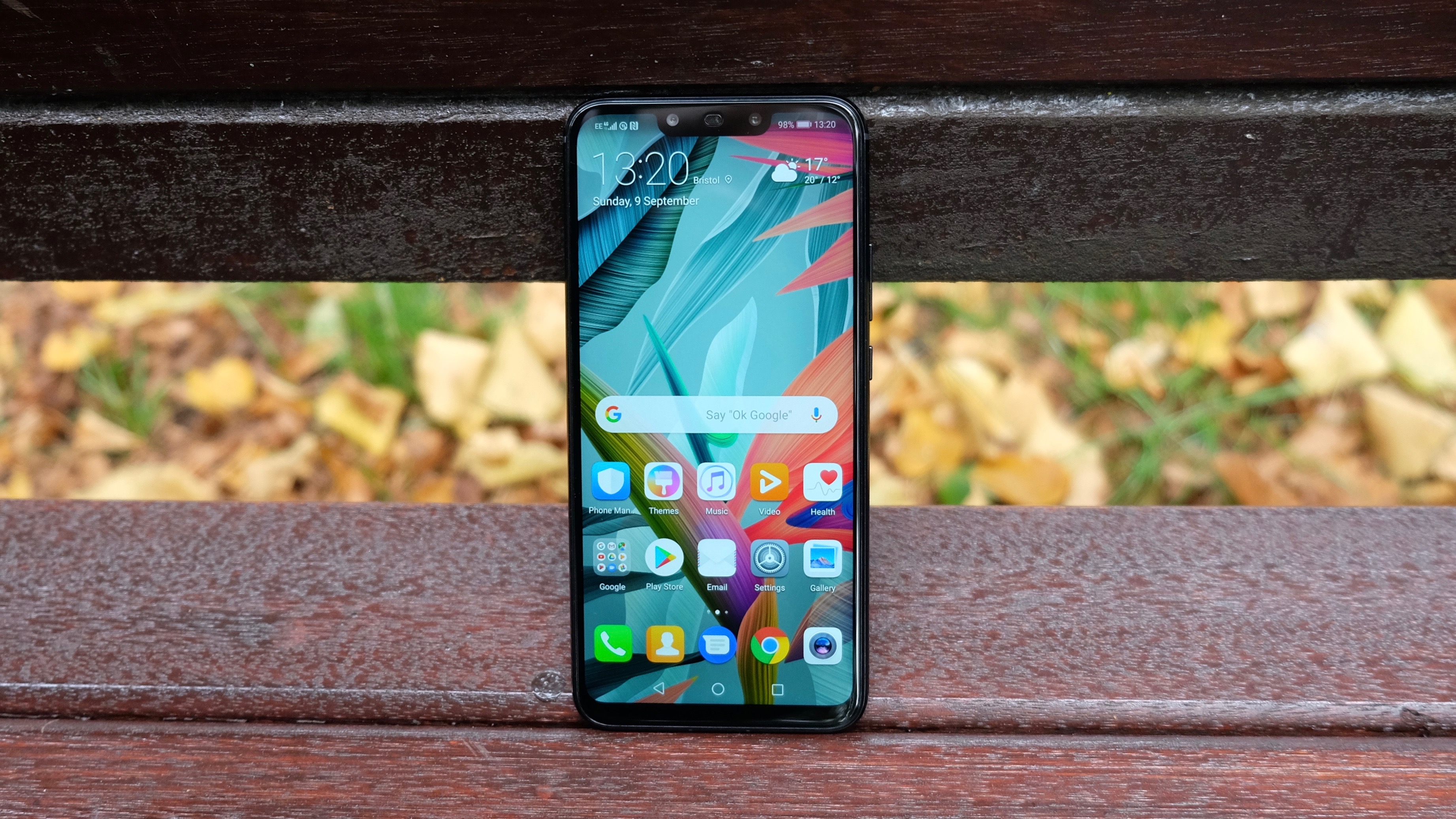Why you can trust TechRadar
Battery life
- 3,750mAh battery
- Solid but unexceptional life
The Huawei Mate 20 Lite packs a larger-than-average battery to accompany its larger-than-average display.
At 3,750mAh, it’s a fair bit bigger than the 3,000mAh batteries you tend to get in smaller devices (such as the Huawei P20 Lite). It’s the exact same size as the Honor Play, though, which shares a 6.3-inch display.
As with its close cousin, the Huawei Mate 20 Lite will comfortably get you through a full day under most circumstances.
That said, we did find that a particularly heavy gaming session (several successive rounds of PUBG, Guns of Boom and Asphalt 9) and a bunch of photography brought the battery down from a full charge to 28% just 8 hours after being unplugged.

Under our standard battery test of a 90-minute 720p looping video with the screen brightness turned up to full, the Huawei Mate 20 Lite lost 14% of its charge on average.
That isn’t exactly spectacular, but it is better than the Honor Play, which lost 20%. It’s also better than the aforementioned Huawei P20 Lite on 17%, though it falls short of the Moto Z2 Play on 10%.
When it comes to battery life, the Huawei Mate 20 Lite scores a healthy par overall.
Sign up for breaking news, reviews, opinion, top tech deals, and more.
Camera
- 20MP + 2MP rear camera, f/1.8 lens
- 24MP + 2MP front camera
Huawei is clearly targeting young selfie takers with the Huawei Mate 20 Lite’s dual selfie cams and gimmicky features, as discussed at the beginning of our review.
But it’s no slouch when it comes to regular shots, either. The dual-camera setup (a 20MP camera with a 2MP assistant for depth information) might lack the Leica branding of the P20 family, but it still has Huawei’s impressive AI algorithms and ever-increasing mastery of photographic principles.

To that end, we were able to get some pretty impressive shots with enough light. Colors popped, exposure was generally balanced, and the shot speeds were nice and snappy.
Those aforementioned AI features particularly seemed to help out on an overcast day, bringing the brightness and tone up to something quite vivid and presentable.
The camera struggles a little in less ideal or indoor lighting, however, with high levels of noise.

The exaggerated bokeh effect of aperture mode is pretty effective at making the subject pop, but wasn’t particularly to our taste. It’s too false and too aggressive, though this can be adjusted to anywhere between f/0.95 and f/16 after the fact - a feature that actually preceded Apple’s implementation.
Those expecting massive gains to their selfie shots due to that impressive-looking dual-camera setup might be a little disappointed, too. They’re not particularly worse than any other smartphone at this price point, but they’re not significantly better either - especially in lesser lighting.
The various Portrait mode lighting options (we’re back to Apple-riffing again), meanwhile, proved fairly ineffective at improving matters in our experience. They kind of come across as slightly subtler Instagram-like filters.
Camera samples







Current page: Battery life and camera
Prev Page Introduction, key features and design Next Page Anything else I should know?
Jon is a freelance journalist who has been covering tech since the dawn of the smartphone era. Besides TechRadar, his words and pictures have appeared in The Telegraph, ShortList, Tech Advisor, Trusted Reviews, Expert Reviews, and more. He largely covers consumer technology, with a particular focus on smartphones and tablets. However, he's also been known to dabble in the worlds of entertainment and video games.
